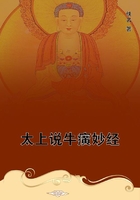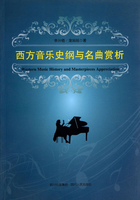Previous Attempts at Solution The only writer who has made any attempt at an exhaustive treatment of the problem now occupying our attention is Menger.
In this Menger starts from the fundamental idea of his theory of value. Supposing that I possess a stock of consumption goods, the clearest way of finding the value of one single item of the stock is by assuming that I lose it. In this way I find what enjoyment depends upon this item -- the marginal enjoyment already described, -- and find at once the source and amount of its value. This method of determining value Menger now applies to the more complicated case in which one has to decide the value of a single item, among several co-operating production goods. Here also he asks what would be the consequence of losing a single item, or a definite portion of any such item, from among the entire group of available goods (land, seed, agricultural implements, labour, cattle, manure, and so on) -- e.g. a cart-horse or quantity of manure. The decrease in the total return which would take place, gives him the amount of return which the owner feels to be dependent upon the possession of the item in question, and gives him at the same time the foundation of its value.
In applying this Menger has arrived at some very remarkable and important results. No production good can work by itself: to accomplish anything every good requires the co-operation of others; and, in so far as production goods mutually demand and supplement each other, they are, to use Menger's expression, "complementary goods." At the same time the combinations which they enter into are less strict than might be expected. If a single good falls out of a productive group of goods, the efficiency of the remaining goods is not, as a rule, completely destroyed thereby. It happens frequently that the group may still remain a group, and still be effectively employed, although with somewhat diminished return, without the lost good being replaced at all. Land, e.g., yields some return even without manure, or without the whole amount of manure demanded by good farming. Or the loss may be made up, if not with quite the same effect, by the substitution of a good taken from some other group, in which latter group, naturally, the return must equally sink a little.
Or it may happen that the goods left over become ineffective, or too little effective, when grouped as was originally intended, but allow of being annexed to other groups, whose return is thereby raised, although, perhaps, not by the entire amount of what was lost originally. Take, as example, agricultural capital and labour, which have lost their original employment through laying waste of the ground for which they were intended, and are turned to industrial purposes.
It will be seen that the complementary nature of goods does not reach so far as at first sight might be supposed. Every single good requires the co-operation of others in order to be really of use, but the connection of the goods is not a very strict one. Only a portion of the return from the combination ever depends upon any one single element of production; never (except in a few cases which scarcely require to be considered)the entire return.
What Menger has done is distinguished, as well by the logical sequence of his argument as by his skill in observation, and the lifelike interpretation of that observation. It brings light into the darkness of a subject which no other theorist could have faced, much less illumined. At the same time even Menger has not given the entire solution quite perfectly. An example will make this clear.
Suppose three productive elements, employed in the most rational plan of production possible, promise in combination a product whose value amounts to 10 units of value. If the three elements were to be employed otherwise, in combination with other groups, they would certainly raise the return of these groups, but it is against our hypothesis -- which is that of the most rational plan of production, -- that the return can be raised by 10 units; otherwise the first combination chosen would not after all have been the best. There is always an infinite number of ways in which the elements in question can be grouped, but there is always one plan, and that the best, which should be carried out: if this be given up in favour of another, the result must be smaller, even if only to a trifling extent.
Suppose, again, that the three elements are employed in some plan other than the best -- which, be it remembered, demanded their being combined with one another in a distinct group. Say that, by being each separately employed in some other group, the return of each of these three groups is raised by 3 units, and the three elements accordingly now produce a return amounting to 9 units of value.
How in this case will the value of each single item be reckoned according to Menger's principle? By the decrease in return which ensues in the case of loss. In this case the decrease amounts to 10 units -- the full return of the best combination now broken up -- of which, however, 6 can be recovered by the new employment of the two remaining elements.
The loss, therefore, amounts finally to 4, and this is true indifferently of any of the three goods. 12, then, is the value of the three taken together. But this is impossible, since, when most profitably employed, they can give only a return of 10.
This mistake in the result proceeds from a mistake in the method. The normal and determining assumption on which one calculates the value of a good, is not that of its loss, but that of its undisturbed possession, and of the use it gives in fulfilling its end. The assumption of loss serves, in certain circumstances, to show more clearly the advantage of possession.















